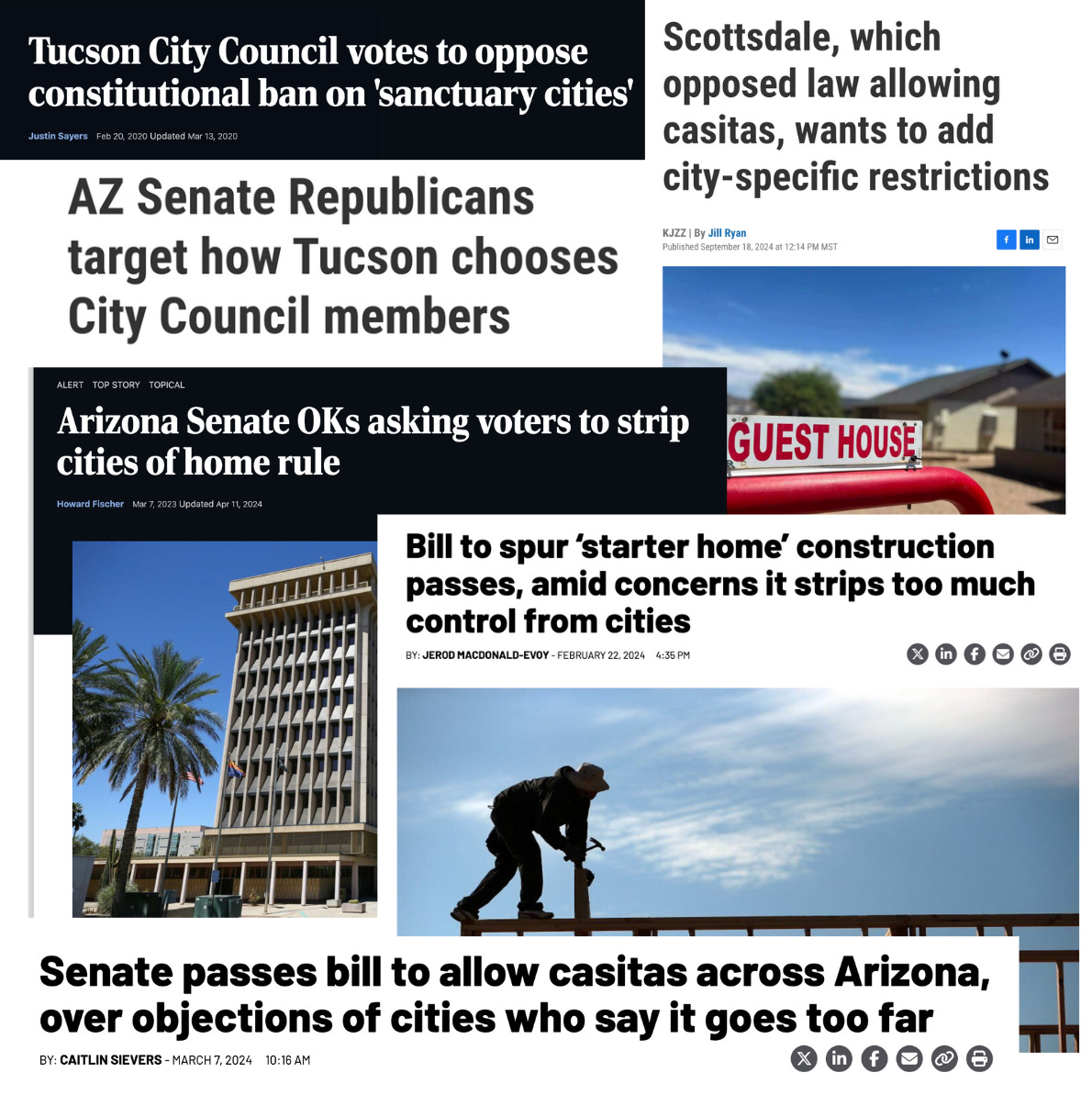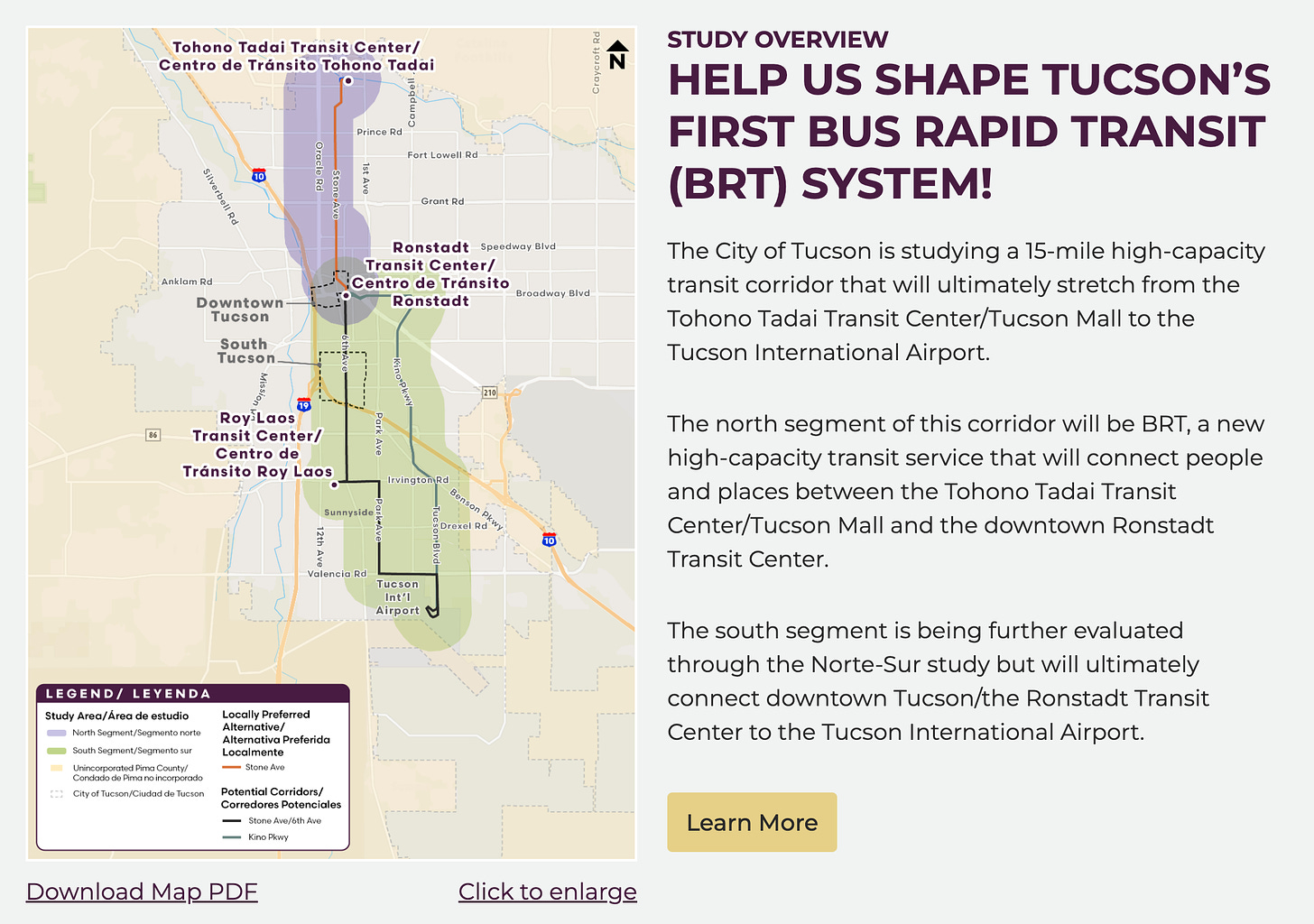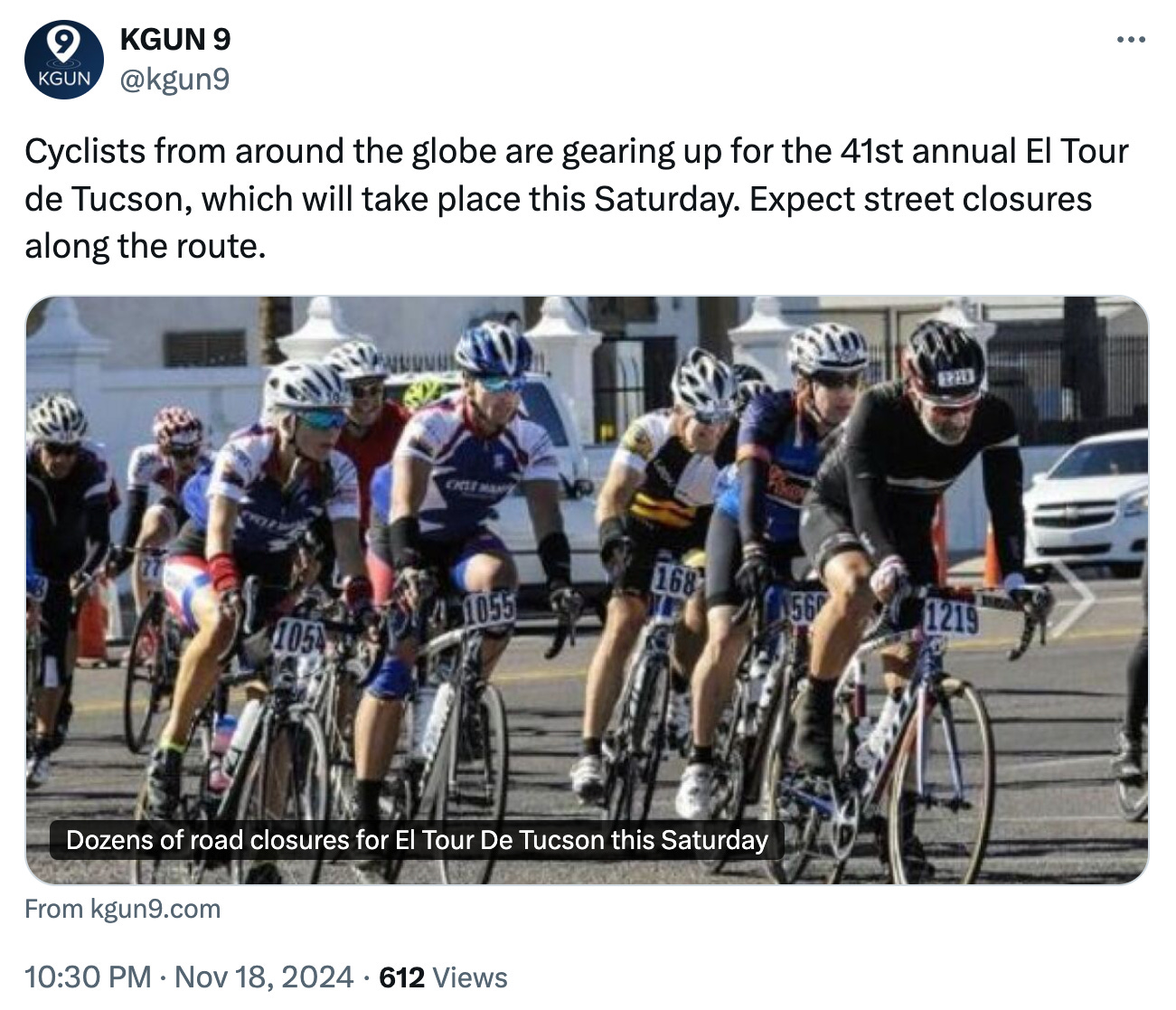Time to look northward
Tucson officials gear up for another year of state lawmaking ... Tucson cult tried to take flight.
The legislative session is right around the corner, and Tucson officials are readying themselves for another year of push-and-pull with lawmakers.
Legislators will reconvene in January, but the lawmaking really starts next Monday when the “hopper” opens and legislators can start introducing bills.
This evening, the Tucson City Council is fine-tuning their 2025 State Legislative Agenda, the council’s wish list for what they’d like to see lawmakers address, and what they want them to avoid. Once it’s set, that will be the “guiding framework for influencing state legislation,” City Manager Tim Thomure wrote in a memo to the council.
As they try to influence lawmakers, Democrats on the council will have an even tougher row to hoe now that Republicans expanded their majority in this month’s elections. But that doesn’t mean they’re going to sit quietly during the legislative session.
Every year, officials in Tucson and cities across the state battle lawmakers over myriad issues, like the housing laws from this spring that local officials opposed, but now have to pass ordinances to comply with.
At the top of the city’s wish list, they want to restore some of the state-shared revenue that evaporated after the 2.5% flat tax was put in place under Gov. Doug Ducey. The flat tax will cost Tucson about $30 million in fiscal 2025, city officials say.
That’s in line with one of the main goals of the legislative agenda, to keep the money flowing from the state to the city.
The city also wants lawmakers to include funding when they pass laws that require cities to take on new responsibilities, such as “state-mandated zoning, general plan amendments, neighborhood redevelopment plans, and code updates.”1
Another main goal is to get lawmakers to “respect local decision-making authority” on zoning, land use, and infrastructure projects.
These wish lists often include dozens of items, including some that are easy to overlook. For example, city officials would like to see an increase in the state excise tax on cell phone bills, a way to boost a statewide 911 system that better serves rural areas.
City officials also want lawmakers to expand economic development tools, some of which come up regularly on council meeting agendas throughout the year, like the Government Property Lease Excise Tax (GPLET) that allows officials to waive property taxes for developers.
Unfortunately, there aren’t any GPLETs for local reporting. But we have something better: paid subscribers who keep us going.
Here’s another one: The city wants lawmakers to promote “Smart City infrastructure,” including the “integration of AI-driven technologies to improve public services and enhance urban living.”
One legislative issue the council didn’t explicitly include in their wish list, but they’re also going to discuss at a study session this evening, has to do with funding for transit.
Fare-free transit was a hot topic earlier this year as the Tucson council scrambled to find a way to avoid imposing fares again.
Some of the options the city put together don’t require any action from lawmakers, like sharing costs with the University of Arizona or the Tucson Unified School District. That idea fizzled last year, but apparently there is a “willingness by the education partners to re-engage in conversations,” Thomure wrote in a memo.
Other options, however, would need help from lawmakers. Those include tweaking the rules for a transportation utility fee, adding transit as an authorized use of special taxing districts, or allowing cities to use impact fees to fund transit.
While the council is going to decide on their wish list today, they’re also leaving the door open to support or oppose any other bill that comes up.
Headlines about wild bills, and Tucson’s opposition to them, will start appearing soon, with a surge in January as lawmakers see which ideas can get traction.
You can watch today’s Tucson City Council meeting on the city’s YouTube channel. The study session starts at 1:30 and the regular meeting starts at 5:30.
Border talk: Gov. Katie Hobbs said she’d push back on Trump administration policies she sees as harmful to Arizonans during a visit to Nogales yesterday, but generally would work with the administration on border security, the Arizona Daily Star’s Emily Bregel reports. Hobbs wouldn’t get into specifics about what she would do if the administration follows through with mass deportations, as President-elect Donald Trump promised on the campaign trail.
Election Day turnout: Sheriff candidate Heather Lappin cleaned up with in-person votes as she tried to unseat Sheriff Chris Nanos, Arizona Public Media’s Hannah Cree reports. Lappin outpaced Nanos by nearly 16,000 in-person votes on Election Day, which might be the result of Republican voters who were upset when Nanos suspended Lappin in the final days of the campaign. The race is still too close to call and elections officials are planning to do a recount this week.
Call to the public: Tucson officials are re-upping their request for residents to fill out a survey as officials plan the Bus Rapid Transit system along Stone Avenue. Officials want to know where they should put bus stations along the route, which will run from the Tohono Todai Transit Center to the Ronstadt Transit Center. The survey closes December 1. You can fill it out here.
Cult following: A “fringe religious sect” that began in Tucson in the 1960s raised millions of dollars from its followers, and used some of that money to buy a plane in the hopes that their dead prophet William Branham would come back from the dead and fly them around on it, the Star’s Tim Steller reports with Emily Hamer in their multi-part series on “The Message.”
New digs: Pima County officials are looking at the vacant Wells Fargo building in downtown Tucson as a temporary replacement while the main library undergoes renovations, the Arizona Luminaria’s Yana Kunichoff reports. The option came up as county officials look for ways to revive the library system, and talk more with the public after a proposal to close libraries in August set off a backlash. They’re planning a 10-month outreach campaign starting in January.
Flag day: The City of Douglas could be getting a flag soon, thanks to a final effort by outgoing Mayor Don Huish and local high school students who are pitching in with design ideas, Lyda Longa reports for the Douglas Dispatch. Douglas is one of the few cities in the state that doesn’t have a flag of its own.
$1 million: The funding for equipment to combat street racing the Tucson City Council will consider approving this evening. That includes $340,000 for automated license plate readers, $300,000 for pan-tilt-zoom cameras, $226,500 for a gunshot detection system, and $125,000 for a mobile speed enforcement van.
This morning, the Pima County supervisors are going to try to figure out how four ballot measures will affect the county.








